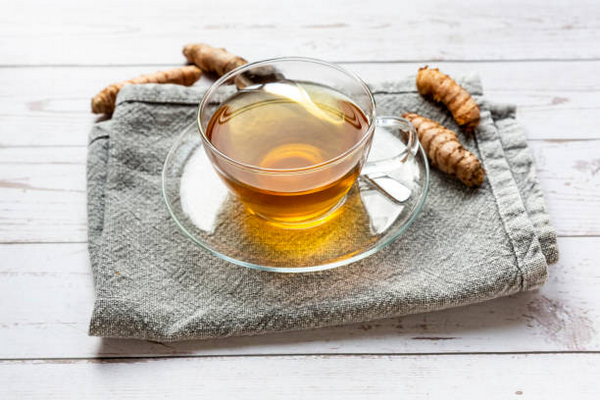Are you suffering from a headache? Here are 12 herbal teas that will help stop your headache in its tracks and give you some much-needed relief.
1. Peppermint
Peppermint tea has menthol and menthone. These substances help relax muscles and relieve headaches caused by tension, the most common headache type. They also are full of anti-inflammatory, analgesic, and soothing qualities that provide powerful relief for intense headaches. Enjoy hot or iced as a tea, but for the aromatherapy effect, hot does the trick. Do not drink this tea if pregnant or breastfeeding, have a history of stomach inflammation, or if you have gallbladder or liver disease. Do not give this tea to children under age two.
2. Chamomile
Relaxing and soothing, chamomile tea can aid in alleviating stress, insomnia, tension, and anxiety, which are common headache triggers. Rich in apigenin, it targets brain receptors and causes relaxation and calm. Its analgesic and anti-inflammatory qualities relieve headache pain. It decreases many different migraine symptoms and lowers the frequency of migraine attacks.
3. Turmeric
Turmeric tea has curcumin. This is an anti-inflammatory compound that may aid in relieving migraine symptoms. Black pepper increases the absorption of curcumin. You can grind the root for tea or use it in its other forms, like capsules, powders, and extracts. Its medicinal benefits are widespread, but its anti-inflammatory, antioxidative, anti-protein aggregate, and analgesic qualities have linked it to migraine prevention and management. The research on its use as a tea is in the early stages, and use with one’s regular treatment should be confirmed with a healthcare provider.
4. Feverfew
Feverfew is a traditional herb used to treat headaches, especially migraines. It can block headache attacks from occurring and decrease their painful effect and impact if they occur. More study trials are necessary to confirm conclusions as to its effects on migraine frequency reduction. It can cause mouth irritation and may induce labor if consumed while pregnant.
5. Lemon Balm
Lemon balm tea can relieve stress-induced headaches due to its ability to relax muscles, reduce tension, and relieve pain. This makes it useful in helping with headache management. Lemon balm tea has mild sedative and anti-inflammatory properties, which also help relieve headaches. Lastly, some research shows that it improves circulation, which relieves blood vessel constriction that can also cause headaches.
6. Linden (Lime Tree)
Linden tea (or lime tree tea) is a common natural treatment for tension headaches. It has calming and sedative qualities. It helps relieve stress and muscle tension. It is also anti-inflammatory and pain-relieving. All of these properties make it a natural remedy that is potentially effective in relieving headaches.
7. Boldo tea
Boldo tea can help relieve headaches like those from indigestion or hangovers. Because it has detoxifying and calming effects, it is a good remedy for hangovers. It breaks down and eliminates ethanal, which the liver produces after alcohol consumption and contributes to headache symptoms. Some studies also show that its calming and relaxing effect can help manage tension and anxiety.
8. Valerian
Valerian tea can also ease tension headaches by increasing feelings of relaxation and decreasing feelings of anxiety and stress, as headache triggers. It relieves head and muscle tension, calms the nervous system, and improves sleep. While not a cure, it can help manage and reduce headaches. However, side effects like drowsiness or dizziness may occur. It is not recommended for pregnant or breastfeeding women, children under age 12, or those on medications that affect the nervous system.
9. Ginger
Ginger can reduce inflammation and nausea, two symptoms often associated with migraines. It also decreases feelings of stress. For best results, use fresh ginger to make your tea. Its antioxidant and anti-inflammatory properties are due to the gingerol, shogaol, and zingerone contained in the root.
10. Clove
Clove tea has antinociceptive properties and can block or reduce pain perception, which may be why some use it as a tea to treat headaches. Cloves have chemicals that slow healing, however, so you should consult a doctor if you have recently had surgery or take blood thinners.
11. Lavender
Lavender is known for its soothing and calming scent. When made into a tea from its dried plant buds, it has natural calming effects that soothe anxiety, headaches, and stress. It calms muscles and triggers a relaxation response that could end a headache.
12. Willow Bark
Called “nature’s aspirin”, it has a long history of relieving pain. Available as a supplement, chewable raw bark, tincture, and tea as well, it is not regulated, and it is hard to tell how much willow bark you are getting per serving of a mixed blend loose tea, for example.
While it has no negative side effects when taken in moderation, excessive use can lead to stomach cramping and bleeding. Other less frequent side effects include difficulty breathing, hemolytic anemia, liver failure, and life-threatening allergies, especially for those who are allergic to aspirin.
It is sold everywhere from online stores to tea companies specializing in loose tea leaves. Its claim to fame is that it contains a chemical called salicin, and this makes it like aspirin in its pain and fever-reducing effects. It is widely used but lacks evidence to support any of its curative properties or uses in relieving pain. Many believe it may help relieve headaches because it is similar to aspirin. Many people who buy loose tea blends prefer natural remedies over aspirin or ibuprofen, so they choose willow bark to help alleviate or manage their headache pain.
Willow bark also has anti-inflammatory characteristics. This means it can provide relief from headache-related inflammation. Therefore, its pain-relieving and anti-inflammatory properties make it a natural choice for some individuals who are seeking headache relief.
Consult with a doctor or other healthcare provider if you are trying this one or any of the 12 teas listed here for the first time. Stick with one herbal tea at a time until you find one that works instead of mixing varieties. Start with a small amount first and see how you respond.
Finding your tea from several brands is similar to finding any other consumable product. Consider the taste. Evaluate how much time it takes to prepare and/or how accessible it is alone, or if it is sold mixed as a loose tea or even in some other form. Lastly, how effective is it with tension relief, migraines, or whatever kind of headache you have? Consideration for long-term use requires patience, expense, trial and error, along with potential side effects.
Just because it is an herbal tea does not mean that it is safe or that it works any better than aspirin or ibuprofen could on your headaches. If your headaches don’t heal after a few days, don’t just search for another tea to try. Seek out a healthcare provider and get to the root cause of your headaches.
Be clear and reasonable about what you expect from a headache-relieving herbal tea. Do you want immediate headache relief, a permanent cure, pain management, or just another “natural” beverage option? Then, determine if your expectations are realistic hopes for your healing.



